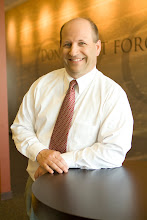Schwab Misleading Investors About ETF Costs
Schwab Misleading Investors About ETF Costs
Nov. 6, 2012
I was watching a football game last Sunday and on comes a commercial from Charles Scwhab about how they offer the lowest cost Exchange Traded Funds (ETF's). They showed a comparison between their ETF's and the industry average and their cost of .004% cost was the lowest in the investment industry. If that was all there was to costs that might be impressive, but the fact that they excluded a bunch of other costs associated with ETF's makes it misleading.
First, what is an ETF? An ETF is fund that mirrors a particular segment of the market. For example, an investor could own a fund that is identical to the S&P 500, but unlike a true index fund an ETF allows an investor to actually trade one segment of the market for another segment of the market. For example, today you could hold an ETF that mirrors the S&P 500 and if tomorrow you think the more attractive market is U.S. Small Company Stocks you sell your ETF in its entirety and buy the U.S. Small in its entirety. It's a quicker way of moving from one market to the other.
Getting back to Schwab misleading investors, ETF's include all the costs associated with an actively trading invetment strategy. The .004% Schwab is referring to is just the tip of the iceberg.
The key word here and why brokerage houses promote ETF's is, Traded. Remember how brokerage houses make money. They make it off of trading securities. How in the world could Schwab afford to put a commercial on prime sporting events on just .004%?
On a $100,000 investment, that .004% equates to $40. You could barely afford to put an ad in a local newspaper if that was all the revenue the brokerage house was bringing in.
So what are some of the costs in actively trading ETF's?
There's commissions. Just like when a stock is traded individually or through a mutual fund there is an expense that is imposed on that transaction and that same commission expense applies to ETF's. There are also Bid/Ask Spreads. When an investor places a trade in addition to the commissions that are paid, the trade also has to go through one of the brokerage houses's market makers.
Think of the market maker as any other business owner with an inventory to buy and sell from. When a customer comes along, the market maker tacks on an expense to the sale in order to make a profit. When the market maker buys back an ETF to add to their inventory they mark down the price so that when they put the ETF back on the market they can sell it at a price that they can profit from. None of the costs were mentioned in Schwab's commercial and if the an investor took the ad at face value they'd have no idea about all the other costs they'd be paying and how they will impact on their returns.
None of these costs metioned even begins to shed light on the costs investors will absorb by participating in the trading of their ETF's. There is no mention of the fact that trading securities on an active basis is gambling and the expected rate of return on gambling is 0%. After absorbing all the costs the return is negative. Hence, promoting solely the costs of holding the fund is completely misleading to the investing public.
Brendan Magee is the founder and president of Inevitable Wealth Coaching in Drexel Hill, Pa. With questions or comments call 610-446-4322 or e-mail brendan@coachgee.com.


0 Comments:
Post a Comment
Subscribe to Post Comments [Atom]
<< Home